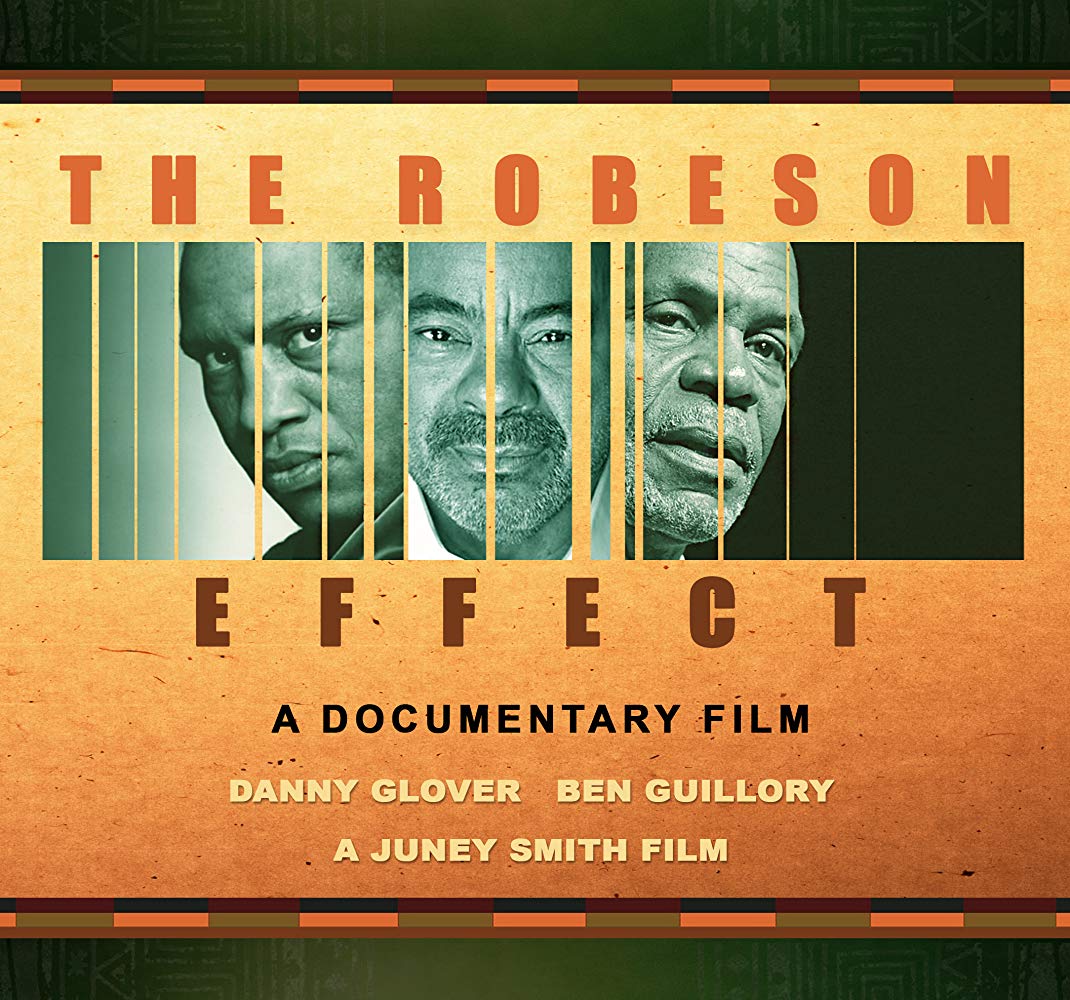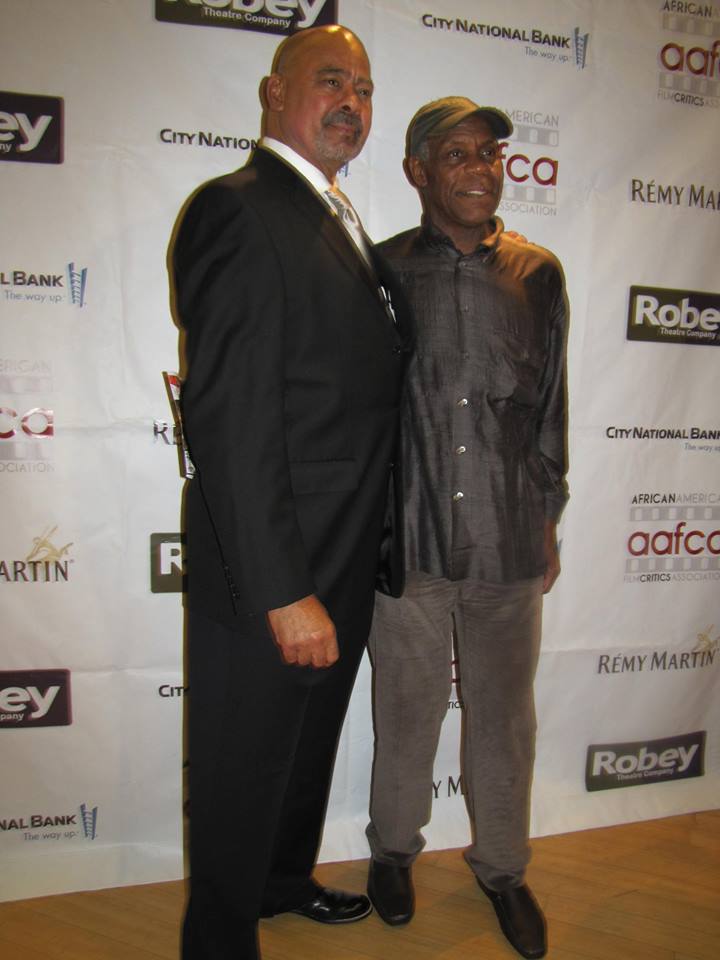
by The People’s Minister of Information JR
Juney Smith’s documentary “The Robeson Effect” is one of three headlining films at the San Francisco Black Film Festival, and it documents the lives of thespians Danny Glover and his lifelong friend Ben Guillory in theater and their work in creating Roby Theater.
In San Francisco history, Danny was a member of the Black Student Union at SF State that launched the SF State Student Strike ultimately leading to the creation of Ethnic Studies programs in universities, colleges and high schools around the nation.
Beyond that and since then, Danny has been most recognized for his acting abilities in films like “Raisin in the Sun” and “The Color Purple.” And a few years back he made international headlines when he declared that he would make a film about the Haitian Revolution with the financial backing of the government of Venezuela, which was then under Chavez.
I did this Q&A with filmmaker Juney Smith so that San Francisco’s Black community specifically would know that two legendary thespians from Hunters Point and Fillmore are returning with a film about their lives in theater, being from the area. This is our story, and it is better to get history from the mouths of the people who made it instead of from the people who later try to interpret its meaning for us.
“The Robeson Effect” will be screening on Saturday, June 15, 7 p.m., at the FilmMore Grand Theater, 1330B Fillmore in San Francisco. Tickets are available at sfbff.org. Here is filmmaker Juney Smith in his own words.
M.O.I. JR: Who was Paul Robeson to Black America and why did Danny and Ben name their company after him?
Juney Smith: Well firstly, Paul Robeson – many people pronounce it Robi-son, but it is actually Robe-son – his international achievements as a singer and an actor with starring roles on stage and on the screen made him the most celebrated Black “American” of his day.
But his outspoken criticism of racism in the United States and his strong support of African independence is what really placed him among the nobility of Black people, Black America and America as a whole.
Robeson’s outspoken criticism of racism in the United States and his strong support of African independence is what really placed him among the nobility of Black people, Black America and America as a whole.
Danny and Ben named their company after him because they move in the same ilk, meaning that they are artists who are committed to the craft, in writing and theater. However, in regards to the type of productions that they wanted to do or have done, and in regards to the way that they see the world and move about the world is reminiscent and similar to Paul – meaning uncompromising, being a humanitarian, and looking to put Black people in the best light, in our historical light, in our true historical light. And I would imagine that that is the reason that they named their company after Paul Robeson, and their work speaks for itself.
M.O.I. JR: What made you want to make a documentary film about Danny and Ben’s relationship to theater?
Juney Smith: A year and a half ago or two years ago, I made a film entitled “King of Stage: The Woody King Jr. Story.” Woody King Jr. is a steward of the New Federal Theater in New York City that has facilitated or in fact produced many of our stars today.
And based off of the success of that film, and when I say success, I’m talking about the inspiration that it provided to folks that saw the film, about the theater, and Black theater in particular, it was an idea that I thought should permeate throughout the country, in terms of selecting the few Black theaters that we do have, documenting their history and their stewards, so that there will be a template for young people and people in general, to emulate and continue in the theater.

M.O.I. JR: What is the purpose of theater in today’s society?
Juney Smith: Theater is simply a mirror of society, given to the people in an entertaining, interesting, educational way so that they could see themselves, hear themselves and make a determination on what would be right, what would be true, what would be good, and what would be positive in the world and how they see it and see where they fit in.
M.O.I. JR: What do you want people to get out of this film?
Juney Smith: Well firstly, we have your native sons, Danny and Ben, who grew up in San Francisco. And these gentlemen started out not knowing that they were artists. They became artists and they went to Hollywood, and their friendship created greatness.
Danny became an international movie star. Ben became an international steward of a theater that had facilitated thousands of artists over the years. And it is very important that we have an institution so that people could come and train and learn and give to society, theater, Black theater in particular.
Now what do I want people to get out of this film? I simply want them to get the historical perspective of these two gentlemen and the roadmap that they set and they laid down. If you’re interested in being an actor in Hollywood, or if you are interested in seeing what the sojourn is by and for Black actors in Hollywood, I want people to get from the film this historical perspective. So that then once again there is a template, there’s a roadmap, there’s an understanding on how, what and where.
M.O.I. JR: After you complete the film festival circuit, what is the ultimate goal with this film?
Juney Smith: After the film festival circuit, the goal of the film is to be distributed. We already have distribution. And this film will be released December 15, 2019.
M.O.I. JR: What makes Danny and Ben such good thespians that you needed to tell this story?
Juney Smith: Well, first of all, they are both great actors, they’re well trained actors coming out of the American Conservatory Theater. And as you know with Danny being an internationally acclaimed movie star, his work speaks for itself. And it is unique that two friends start out young, not knowing that they are artists, finding out that they are artists, and they become excellent thespians, and then they move from San Francisco to Hollywood. They both were in a classic film, which lives forever, “The Color Purple,” and it is unusual to see a tandem like this accomplish what they accomplished, and it is worthy of a story.
They both were in a classic film, which lives forever, “The Color Purple,” and it is unusual to see a tandem like this accomplish what they accomplished, and it is worthy of a story.
M.O.I. JR: How did you feel about getting accepted in the SF Film Fest, which is based in one of the San Francisco neighborhoods that Danny and Ben grew up in?
Juney Smith: It is an honor and a privilege to be selected to the San Francisco Black Film Festival, because we don’t have too many festivals of this magnitude and this longevity. So I’m ecstatic and honored, and I know that it is a very unique opportunity to be selected.
I’m overwelmed and so happy that we are in the festival, and it is one of prestige and one that will reign forever in regards to accomplishments. And to have it right in the neighborhood that Danny and Ben grew up in, it doesn’t get any better than that. And I’m excited to see them in this milieu, with the audience in their hometown. I mean, you couldn’t ask for anything better. I’m so glad that the trails met each other, and we are coming to the big screen in San Francisco.
M.O.I. JR: How could people keep up with your work?
Juney Smith: It’s very simple to keep up with my work, you could just go on imd.com (international movie database) and all of my activities are listed there. Thank you so much.
The People’s Minister of Information JR Valrey, journalist, author and filmmaker, can be reached at blockreportradio@gmail.com or on Facebook. And tune in to BlockReportTV on YouTube.





